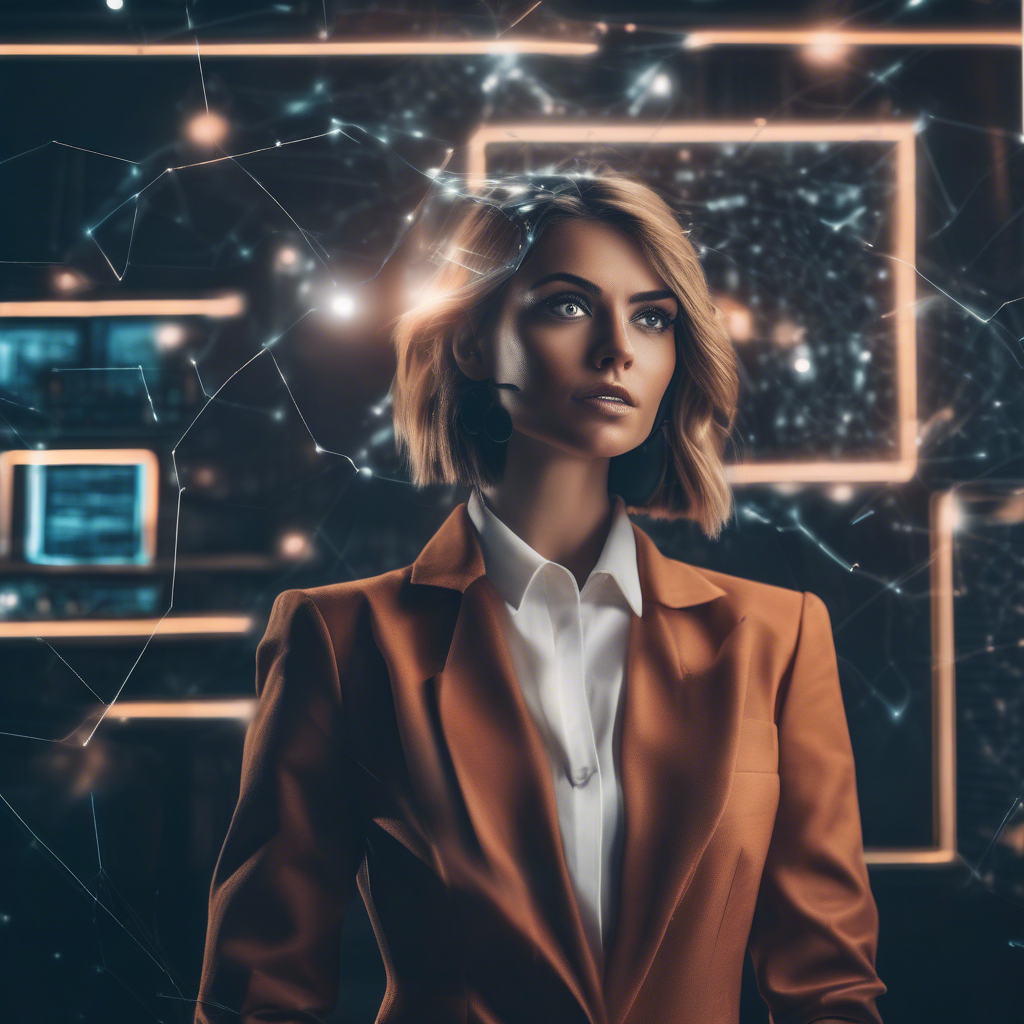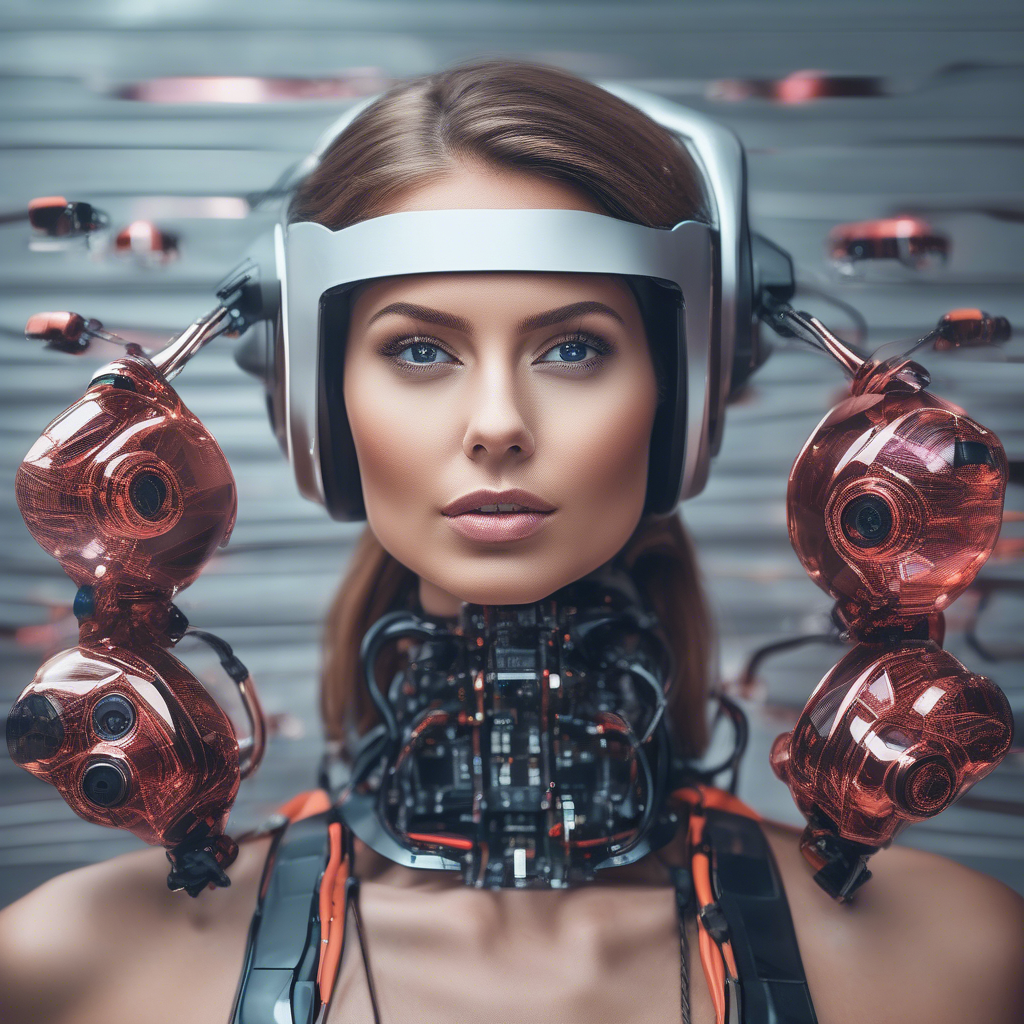The Rise of AI Influencer Models: Transforming Digital Marketing Strategies

In a world where digital presence shapes consumer behavior, the rise of AI influencer models is revolutionizing how brands engage with their audiences. These virtual influencers, powered by artificial intelligence, are not just a futuristic concept but a burgeoning reality that is transforming digital marketing strategies. Whether it’s the seamless integration of AI in marketing or the innovative shifts in influencer marketing trends, these digital entities are reshaping the landscape.
AI influencer models are gaining traction as brands seek more efficient, reliable, and scalable ways to reach their target markets. As companies continue to navigate the complexities of digital marketing, understanding the impact and potential of AI influencers becomes crucial. This article delves into what you need to know about AI influencers for brands, exploring their rise and the future of digital marketing.
Throughout this article, you will discover how AI influencer models are changing the advertising world, real-world examples of their success, and actionable insights into harnessing their power for your marketing strategies. By the end, you will have a comprehensive understanding of how artificial intelligence in advertising is shaping the future and how your brand can benefit from these advancements.
Veja também: Essential Tax Planning Strategies for 2024
The Evolution of AI Influencer Models
The concept of AI influencer models is not entirely new but has gained significant momentum in recent years. Initially, AI influencers like Lil Miquela, a virtual character created by a tech startup, began captivating audiences with their lifelike appearances and relatable personas. These AI-driven models are crafted using advanced algorithms and machine learning, enabling them to interact with followers authentically and persuasively.
Real-world examples further illustrate their effectiveness. For instance, Shudu Gram, the world’s first digital supermodel, collaborated with brands like Fenty Beauty, showcasing how AI influencers can seamlessly integrate into traditional marketing campaigns. This ability to engage without the unpredictability of human influencers is a significant advantage for brands seeking consistency and control over their message.
AI influencers offer brands a plethora of data-driven insights, allowing for personalized marketing strategies that resonate with specific demographics. By analyzing user engagement and behavior, companies can tailor their content to maximize impact. This level of customization is a testament to the potential of AI in marketing, providing brands with a competitive edge in the crowded digital space.
Impact on Digital Marketing Strategies
The integration of AI influencer models into digital marketing strategies is changing the dynamics of how brands connect with consumers. One of the most significant advantages is the ability of AI influencers to operate on a 24/7 basis, catering to global audiences without the constraints of time zones or physical presence. This continuous engagement is a game-changer for brands looking to maintain a constant online presence.
Enhancing Brand Authenticity
Despite being artificial, AI influencers can enhance brand authenticity by delivering consistent and targeted messaging. For example, brands like Calvin Klein have utilized AI influencers to maintain a cohesive brand image across various digital platforms, ensuring that the brand’s voice remains uniform and authentic.
Moreover, AI influencers reduce the risk associated with human influencers who might fall into controversies, thus protecting brand integrity. This reliability in influencer marketing trends is invaluable for companies aiming to build long-term relationships with their audience.
The Future of Digital Marketing with AI Influencers
The future of digital marketing is inextricably linked with the advancement of artificial intelligence and the role of AI influencer models. As technology evolves, these virtual entities will become more sophisticated, potentially surpassing human influencers in terms of adaptability and reach.
AI Influencer Models and Consumer Engagement
AI influencers are poised to redefine consumer engagement through immersive and interactive technologies like augmented reality (AR) and virtual reality (VR). These technologies allow for an engaging and personalized user experience, making interactions with AI influencers more memorable and impactful.
Brands that embrace these innovations can create unique and compelling narratives that captivate their audiences, setting them apart in the competitive digital landscape. The rise of AI influencers is not just a trend but a glimpse into the future of digital marketing, where personalization and engagement are paramount.
To further explore how AI influencer models are revolutionizing marketing strategies, consider watching related video content that delves into case studies and expert insights on leveraging AI in marketing effectively.

Frequently Asked Questions
What are AI influencer models?
AI influencer models are digital personas created using artificial intelligence and machine learning. They simulate real-life influencers by engaging with audiences and promoting brands across digital platforms. These models are designed to be highly interactive and data-driven, making them a powerful tool in influencer marketing strategies.
How do AI influencers differ from human influencers?
AI influencers are virtual and operate without human limitations, providing consistent engagement and avoiding controversies. Unlike human influencers, they can be programmed to align perfectly with brand values and maintain a constant online presence, offering a level of reliability and scalability unmatched by their human counterparts.
Can AI influencers be as effective as human influencers?
Yes, AI influencers can be highly effective, especially in targeted marketing campaigns. They provide detailed analytics and insights, allowing brands to tailor their strategies for maximum impact. While human influencers offer authenticity through personal experiences, AI influencers excel in consistency and data-driven engagement.
What industries benefit most from AI influencer models?
Industries like fashion, beauty, and tech are currently benefiting the most from AI influencer models. These sectors often rely on visual and engaging content, making AI influencers ideal for creating impactful digital marketing campaigns. As technology advances, other industries are likely to explore these opportunities.
How can brands integrate AI influencers into their marketing strategies?
Brands can integrate AI influencers by collaborating with tech companies specializing in AI models, creating personalized content that resonates with their audience, and using data analytics to refine their strategies. Successful integration involves aligning AI influencers with brand values and leveraging their unique capabilities to enhance consumer engagement.
Conclusion
The rise of AI influencer models is undeniably transforming digital marketing strategies, offering brands new ways to engage and connect with audiences. These virtual personas provide a blend of consistency, reliability, and innovation that is reshaping influencer marketing trends. As technology continues to advance, the role of AI in marketing will become even more integral, paving the way for more sophisticated and effective advertising strategies.
For brands looking to stay ahead, embracing AI influencers is not just an option but a necessity. By aligning with these digital entities, companies can harness the full potential of artificial intelligence in advertising, ensuring a competitive edge in the ever-evolving digital landscape.
To delve deeper into the world of AI influencers, consider exploring topics such as the ethical implications of AI in marketing, the role of machine learning in digital advertising, and how virtual reality is shaping consumer experiences.




